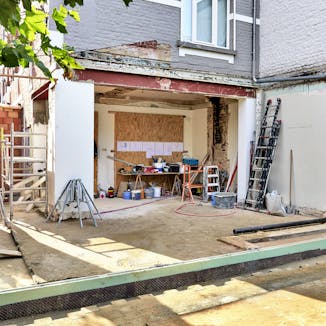See the latest rates for £15,000 loans, get quotes and check your eligibility without impacting your credit score.
Get a decision within an hour
Quote won’t affect your credit score
Poor credit & arrears accepted







These products are only available via a broker and can't be applied for directly
We're on a mission to improve the finances of the nation by helping you to spend wisely and save money



We're on a mission to improve the finances of the nation by helping you to spend wisely and save money



By Matt Fernell, Editor at Finance.co.uk.

A £15,000 loan could help you buy a new car, consolidate your debts or make home improvements. Here’s how to find a £15k loan that’s right for your circumstances.
We’ve partnered with Loans Warehouse, whose award-winning service can help you find the right loan.
Poor credit history accepted
Get a decision within an hour
Quotes tailored to you
Eligibility check with no impact on your credit score
Compare quotes from a range of trusted lenders
We find you quotes tailored to your eligibility and needs. To do that, we just need to understand:
The term of the loan you want
Your financial situation
Your personal details
We’ll be in touch with a decision and quotes within an hour, and we’ll go through your options to help you find the right £15k loan.
There are two main types of loan you can get when you want to borrow £15,000: an unsecured loan or a secured loan.
With a £15,000 personal loan, you don’t need to put down a valuable asset as collateral. They tend to be for smaller amounts and shorter terms, but you will need a good credit score to get one.
To get a secured loan, also known as a homeowner loan, you will need to put down a valuable asset, usually your home, as security. You can borrow more with a secured loan and sometimes get a lower rate, but you will be putting your home at risk if you cannot keep up with your repayments.
Things that will determine which option is right for you include:
Your homeowner status
Your credit score
The loan term you want
Your attitude to risk
The eligibility criteria will differ from lender to lender, but common rules include:
You must be a UK resident
You must be at least 18 years old or 21 with some lenders
You need to have a job with a steady income
You need to have a good credit score, especially for an unsecured loan
You need to own your home to get a secured loan
You may only be eligible for some loans if you have a current or savings account with that particular lender.
When we get quotes, we first perform a ‘soft check’ on your credit record. This means we only ever show you rates that you’re eligible for.
You can use your £15,000 for anything you like - it could help you to finance:
The purchase of a new car
A big event like a wedding
Home improvements like a new kitchen or bathroom
Consolidating debts
There are some things that most loan providers won’t offer you a loan for, however, including:
Gambling
High-risk investments
Purchases of property or land
Timeshares
You can work out how much a £15,000 loan will cost to repay if you know the interest rate (APR) and the term of the loan.
For example, to borrow a £15,000 loan over 5 years with an APR of 9%, it will cost:
£308.82 a month
A total repayable amount of £18,539.48
£3,529.48 overall in interest
If you want to reduce your monthly payments, you can extend the loan term, but this means you will pay more interest overall. For example, the same £15,000 loan over 10 years would be:
£187.17 a month
A total repayable amount of £22,460.92
An overall cost of £7,460.92 in interest
It’s worth using a loan calculator to help you work out what your repayments could be over different terms. Try to choose the shortest term with repayments you can afford to ensure you don’t pay more than you need to overall.
The information provided does not constitute financial advice, it’s always important to do your own research to ensure a financial product is right for your circumstances. If you’re unsure you should contact an independent financial advisor.
APR is short for Annual Percentage Rate, and it shows the overall cost of your loan.
Any extra fees or charges are added to the loan amount before APR is calculated.
It's a legal requirement for credit lenders to show their APR so an easy and fair comparison of interest rates can be made between lenders.
If you don’t think you’ll be able to repay your loan, contact the lender as soon as possible. They could be able to help by working out a new repayment plan you can afford or authorising a payment holiday to give you some time to get your finances back on track.
If you miss your repayments without telling your lender, you will probably face late payment fees and interest. It will also harm your credit rating and could put your home at risk if you have a secured loan.
A good credit score will help you access the lowest interest rates and better deals. However, it is still possible to borrow £15k if you have bad credit, especially if you use a secured loan.
Lenders are often more willing to offer you a secured loan when you have a poor credit score because the risk to them is reduced. By using your property as security, your lender knows they can recover any losses they may suffer if you’re unable to keep up with your repayments.
However, getting a personal loan will be much harder unless you have a good credit score. A loan with bad credit usually comes with a higher interest rate, so you must ensure you can afford the repayments before applying.
How long it takes to receive your loan depends on whether you get a secured or unsecured loan.
An unsecured loan can arrive in your bank account within hours of starting your application online. You can get the money this quickly as long as you meet all the eligibility criteria and the lender has all the information they need to release the funds.
Getting a secured loan, however, can take a couple of weeks from application to receiving the funds. That’s because you will need to submit more documents, including proof of home ownership and mortgage statements.
The lender may also want to get an up-to-date valuation and survey of your property before they agree to the loan.
It is possible to pay your loan back early or make overpayments, but most lenders set an early repayment charge (ERC) you’ll need to pay to do this.
The ERC you will need to pay is usually based on a percentage of your remaining loan balance or one or two months’ interest. That means the lower the balance, the lower the fee you’ll need to pay.
If you think you may be able to pay your loan back early, check the terms and conditions when you apply to see what charges you could face.